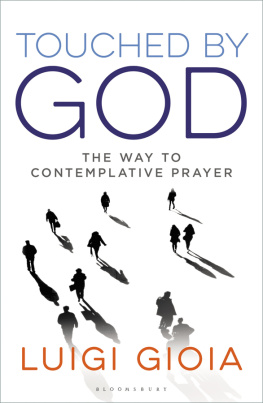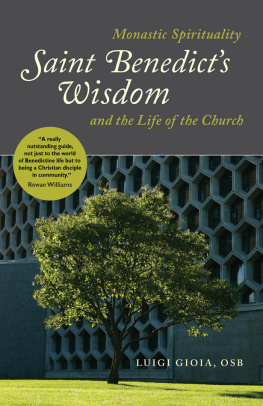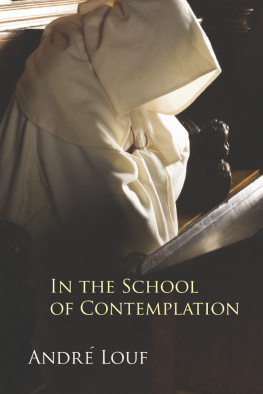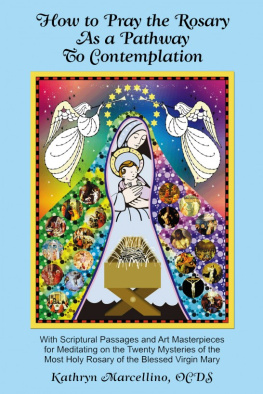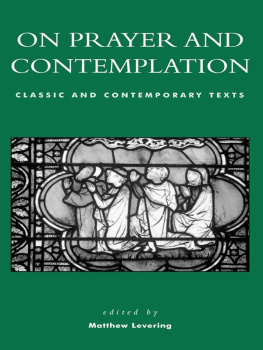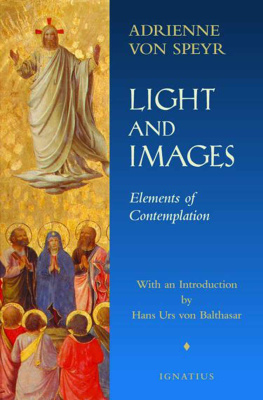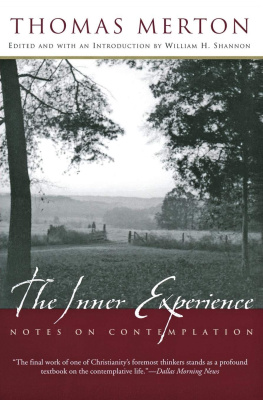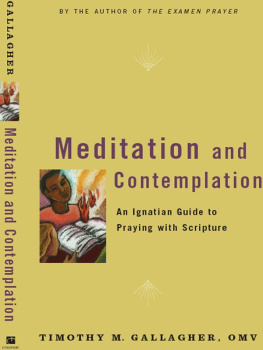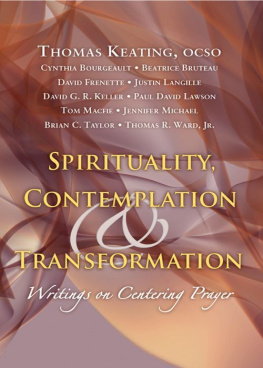TOUCHED BY GOD
To Philip McCosker
Capacious in faith
Lover of paradoxes
Faithful in friendship

CONTENTS
Do we ever reach a stage in prayer where we are granted access to a new level of awareness of God? Are we ever relieved from the burden of constantly having to find something to do or to say so that persevering in prayer somehow becomes natural, spontaneous, effortless? Does prayer ever fill us to the point that it brims over and starts permeating the whole of our life? In a word, is there a point when this sentence by Paul starts to make sense: Pray without ceasing?
Since the age of 16 I have been puzzled by this sentence: Pray without ceasing. At the peak of a period of militant atheism fed by Bertrand Russells arguments against the existence of God, I had decided to disprove Christianity at its roots and embarked on my own reading of the Gospels. A fateful decision. My initial scepticism soon changed into fascination for texts I had heard countless times in snippets but never read from cover to cover. Soon I became so engrossed by them that I remember carrying on the reading for hours on my bed and by the end of it, well, not only had I come to believe in the gospel, but I had started talking to a God I knew did exist and was eager to befriend me.
Through Scripture God had talked to me and, spontaneously, I was trying to answer to him in prayer.
Many years later, when I was studying theology, I could not believe my eyes when I came across a page by the French theologian Henri de Lubac that described exactly that initial wonder at the harmony between Scripture and my heart:
Scripture and the soul are a temple in which the Lord resides, a paradise in which he can stroll. Both are a fountain of living water and of the same living water. Both conceal the same mystery in the depths of themselves. Consequently, the experience of the soul is in prior accord with the doctrine of Scripture. If I need Scripture in order to understand myself, I also understand Scripture when I read it within myself. To the degree that I penetrate its meaning, Scripture makes me penetrate the innermost depths of my being.
This sentence was like a thread: by pulling on it I found that I could detect the same experience throughout two thousand years of theological and spiritual writings.
I found it described in a text from the fifth century by the monk John Cassian: Whoever takes into himself all the dispositions of the Psalms, will begin to repeat them and treat them not as if they were composed by the prophet but as if they were his own utterances and his own prayer.
I discovered similar accounts of the harmony between Scripture and the heart in contemporary spiritual authors, such the French Trappist Andr Louf: There is an affinity between the Word that calls us from outside and the Spirit waiting in our drowsy heart,
Authentic prayer flourishes only through listening to Scripture: Speak Lord for your servant is listening.
This ability of the words from Scripture to speak to our heart is not uncommon in our human experience. We love novels, poems and songs because they give voice to our feelings much better than we would be able to do it ourselves with our own words. Scripture, however, was not just expressing feelings I had in me but unearthing a presence, revealing a voice, that seemed to have always been there only I did not have ears able to listen to it or eyes fit to perceive it. Jesus healings of deaf and blind people suddenly made sense to me. I understood what Luke meant when he said of the disciples of Emmaus that their eyes were opened and they recognized Jesus.
Life changed for me the moment I discovered that I could speak to God in my heart, knowing that he was there and was listening. I could not hear or see anything but when I was reading Scripture from that place in me I could make my way through everything in its pages that puzzled, shocked, bored me, and always pick up a spark that meant something to me and gave me a deep sense of not being alone any more.
From that moment onward, whenever I had some free spans of time during the day I was praying. I used to travel to school and the long journeys by bus were an ideal time for prayer. Same thing during long walks. Words from Scripture would feed my prayer for a long time and I had so much to say to God I knew he was interested in everything, absolutely everything I was telling him.
Still, however, I was not praying without ceasing. I knew that if the Spirit was indeed crying in me, as Paul says, there had to be a way of praying that did not depend on me making the talk all the time or being afraid of running out of things to say to him. The connection with God had to be based on something more than words, but I had no idea about what this something was and how to get there.
I do not remember the first time I came across the idea of contemplative prayer. Not in Scripture for sure, since this expression is not in it. making up something without really knowing what they were talking about.

